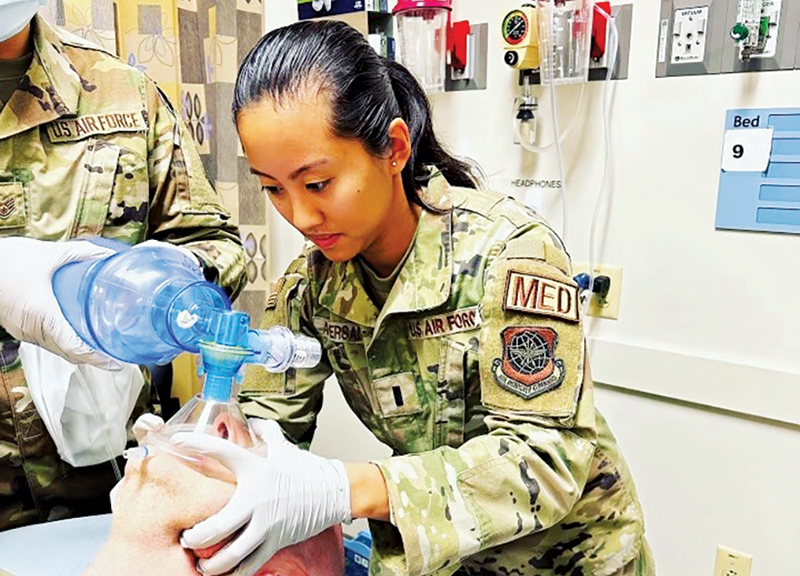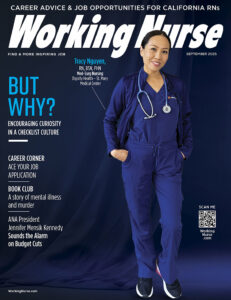My Specialty
U.S. Air Force Nursing, 1st Lt. Noemi Kate Alversado
Caring for service members as an active-duty nurse officer

Clinical Nurse, PACU
David Grant USAF Medical Center
Travis Air Force Base Fairfield
Tell us about your position and the facility where you work.
I’m a first lieutenant in the Air Force Nurse Corps and a clinical nurse in the post-anesthesia care unit (PACU) at David Grant USAF Medical Center, the largest Air Force acute care hospital facility.
Were you a nurse prior to joining the Air Force Nurse Corps?
I grew up in Anchorage, Alaska, and graduated from nursing school in December 2019, right before the pandemic hit. Even when I was doing my preceptorship during the final semester, I already knew that I wanted to join the Air Force.
I spent about two months studying for the NCLEX and then worked a little over a year on a medical oncology unit in the Anchorage hospital where I had done my preceptorship. That year in civilian nursing qualified me to enter the Air Force as a nurse with experience.
Six months into that first year as a nurse, I started my Air Force application, which took about a year. Nine months later, I left Alaska and started my training.
When I entered the Air Force, I thought I’d go into med-surg, so I was surprised that they assigned me to PACU right away. The civilian hospital where I’d worked was pretty high-acuity, so I had that valuable experience under my belt.
Why was the Air Force your choice among the branches of the military?
There are no nurses in the Marines or the Coast Guard, which left the Army, Navy, and Air Force. I talked to many veterans and retirees, and they all recommended the USAF as offering a better standard of living and an easier path to having a family.
When you join the USAF as a nurse, does that automatically make you an officer?
Yes — you have to have your BSN in order to join the Air Force, and my one year of civilian experience was equivalent to six months of prorated credit in terms of promotion time and rank.
What is Air Force nursing like for you?What’s different from the civilian side?
All USAF hospitals are different, so I can only speak from my specific experience.
As a civilian nurse, I worked with a patient population of Alaska Natives. Many were either homeless or lived with substance use disorders or alcoholism. Quite a few would be flown in by plane from outlying villages. These situations and the fact that the hospital was a Level II trauma center meant the level of acuity was high.
Compared to that, my current role is a total 180. David Grant isn’t a trauma center, so we don’t receive high-acuity patients. Most patients in our facility are active-duty, so they’re typically healthier and more fit than your average civilian, although there are a few older VA patients who have service-related disabilities and tend to be sicker.
























